DE PALMA'S 'GOLDEN RULES OF SHOOTING A SEX SCENE'
AND OTHER ARTICLES UPON THE UNLEASHING OF 'FIFTY SHADES OF GREY'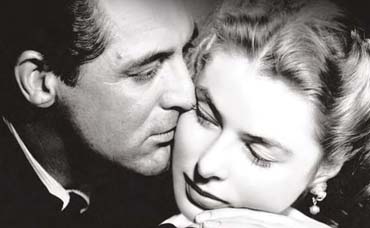
As
Fifty Shades Of Grey was released in theaters last weekend, several outlets posted articles discussing histories of sex scenes and sex thrillers in movies. Also making the rounds was a MovieMaker article from 2013:
Things I’ve Learned: Brian De Palma’s Golden Rules of Shooting a Sex Scene. The article had appeared on the last page of the print edition of MovieMaker's 2014 Complete Guide To Making Movies (which came out in 2013), and was posted online in August of 2013. The article is by
Brian De Palma, as interviewed by
K.J. Doughton.
In the article, De Palma provides seven key things to think about when creating sex onscreen. Quoting the article here would mean truncating too much to do anything much justice, but some interesting notes include: "In
Body Double, I spent a lot of time searching for the right cinematographer. I actually did screen tests for different DPs. I had these incredibly attractive women, and I wanted to make sure they were lensed correctly. That’s when I discovered
Steven Burum, and I used him for many films after that."
Item #4 - "Don’t underestimate the power of a kiss. Watching Alfred Hitchcock, the first thing you learn about kissing is that you have to see the actor’s faces. You have to see them reacting to the kiss. Watch Cary Grant kissing Ingrid Bergman in Notorious. A lot of filmmakers think that just showing people kissing each other, and having a very good time, is enough. But so often their eyes are closed, and you can’t see their faces. The audience is completely shut out. In Hitchcock movies, you can see that they are kissing each other on the neck, and talking. They’re kissing lightly on the lips, and you can see their eyes. You see how they’re reacting. That’s what creates the eroticism of the scene."
And item #7 - "Watch Ryan’s Daughter. There’s one great lovemaking scene in Ryan’s Daughter. She finally has a rendezvous with a military man. It’s exquisitely well done. You really feel the sense of nature surrounding the eroticism. Because [director David] Lean had an idea! Take a girl in a field and make love to her. The feel and the sensuality of the nature around them as they’re getting into the lovemaking—it’s quite good." [When De Palma says that Lean had an idea, it's a callback to his point #3 - "You need some kind of conceptual idea."]
'DRESSED TO KILL' AS THE FATHER OF THE EROTIC THRILLER AS WE KNOW IT TODAY
Prior to the release of 50 Shades Of Grey, Calum Marsh wrote a piece for the National Post with the headline, "Fifty Shades of Grey’s eroticism won’t deliver the thrill of the genre’s predecessors." That's an interesting statement being projected prior to seeing the actual film, but the point of the article echoes something De Palma states in the MovieMaker article above: "The cultural climate is too permissive, too inured, for people to be shaken by a bit of BDSM," Marsh surmises. In the 2013 MovieMaker article, De Palma had said, "Today, there’s such an incredible amount of lovemaking and nudity on cable television, and in pornography on the Internet. You see bodies photographed from every conceivable angle, doing every conceivable thing, so you really have to think hard to approach eroticism with a fresh idea. Just showing people kissing, people fucking—it’s of no interest to me."
In the National Post article, Marsh runs through a quick, brief history of the increasing permissiveness of mainstream cinema between the '60s and '70s. "Thrumming deep beneath these developments," writes Marsh, "was the bass line of the exploitation film. And it would be this strain, with its extravagant vulgarity and sensationalism, that would eventually bring sex to the popular imagination. Brian De Palma’s Dressed to Kill, released in 1980, was indebted in many conspicuous ways to Michael Powell’s Peeping Tom and especially Alfred Hitchcock’s Psycho, both from 1960. But unrestrained by the strictures of the period, De Palma was free to adopt the format and amplify the sex and violence — to remake Psycho, in essence, with the lurid panache of a liberated age.
"Dressed To Kill was a hit: it earned nearly $32-million against its slender $6-million budget, suggesting to financiers around Hollywood that this sort of risqué genre film — owing in large part to the scandal it invariably aroused — could be hugely lucrative, so long as they were marketed in such a fashion to exaggerate, rather than downplay, their more disreputable qualities. Thus the erotic thriller was born."
On February 6th, The Toronto Sun's Liz Braun posted a mostly-annoying article looking at "erotic fails on the big screen," featuring a list of "The Top 20 Unsexy Sexy Movies." Paul Schrader's The Canyons topped her list, followed by Paul Verhoeven's Showgirls at #2. Stanley Kubrick's Eyes Wide Shut was listed at #11. De Palma made her list twice, albeit near the bottom: #17 - Body Double - "The usual: a peeping Tom, the porn industry and construction tools used to ventilate people. Or maybe not. Brian De Palma challenges you to question what you see in this thriller, a challenge made tougher by all the naked breasts in your face. Just sayin'." And then she lists Femme Fatale at #19 - "A diamond thief (Rebecca Romijn) who seduces men and women alike in her line of work swaps identities with a wealthy French woman, takes a bubble bath, meets Antonio Banderas and discovers the whole thing was a dream. What the — ? Funny how often director Brian De Palma's name turns up in detritus like this."
The New Zealand Herald's Dominic Corry posted a similar article on February 11, but his mention of De Palma was positive. Discussing Showgirls, Corry writes, "Verhoeven famously later said that in retrospect, he believes he should've put a serial killer plot into Showgirls to distract the audience from the film's crude commentary on the American dream. Which is about as awesomely cynical a thing as you could imagine a director saying, and I love it. Ahead of seeing the film, I already feel like this kind of thinking may have suited Fifty Shades of Grey. A knife-wielding murderer can justify a lot of lovey-dovey cheese. Hire Verhoeven or Brian De Palma to direct it, and we might actually have something interesting."
And finally, in the wake of the box office results from the opening weekend of Fifty Shades, Entertainment Weekly's Nicole Sperling has posted an article with the headline, "Dirty Money: 11 Highest-Grossing R-rated Erotic Dramas of All Time." She starts off with Dressed To Kill at #11 - "This erotic crime thriller from Brian De Palma stars Michael Caine as both a New York City psychiatrist and a deranged transgender patient and is best known for the brutal elevator murder scene—which DePalma calls the best he’s ever done. The movie generated great reviews and became an inspiration to filmmakers like Quentin Tarantino. The original version was trimmed after the MPAA gave it an X-rating and the film earned $32 million at the box office."
 When the show begins with one of the hosts saying that De Palma's first feature, The Wedding Party, was "such a clunker" he didn't even bother watching it prior to the podcast, and another host says he "took one for the team" in watching it, you wonder why you're even listening to this clunker of a podcast. The team then moves quickly past De Palma's early films, because they are "pretty rough"-- really? Come on, guys, do your homework. Anyway, if you can stick with it past all that, they then begin discussing Sisters (and host Alex Jowski justly insists that De Palma is doing much more than simply aping Hitchcock), Phantom Of The Paradise (which Mister X calls "a glorious train wreck," while Mike White gets passionate, telling the others, "I dig it so much"), Carrie (which is one of Jowski's favorite films of all time-- he wrote about it a couple of months earlier, comparing it with Kimberly Peirce's recent remake), and just about everything up through Body Double. The discussion about Home Movies ("the most awkward" in De Palma's filmography, according to one of the podcast hosts) is typically lazy, even with one noting the very autobiographical nature of the film's plot. Moving on to Dressed To Kill, well, give it a listen and see what you think. They also cover Blow Out (which they loved a lot more than Dressed To Kill) and Scarface. Part 2 should be up later this week.
When the show begins with one of the hosts saying that De Palma's first feature, The Wedding Party, was "such a clunker" he didn't even bother watching it prior to the podcast, and another host says he "took one for the team" in watching it, you wonder why you're even listening to this clunker of a podcast. The team then moves quickly past De Palma's early films, because they are "pretty rough"-- really? Come on, guys, do your homework. Anyway, if you can stick with it past all that, they then begin discussing Sisters (and host Alex Jowski justly insists that De Palma is doing much more than simply aping Hitchcock), Phantom Of The Paradise (which Mister X calls "a glorious train wreck," while Mike White gets passionate, telling the others, "I dig it so much"), Carrie (which is one of Jowski's favorite films of all time-- he wrote about it a couple of months earlier, comparing it with Kimberly Peirce's recent remake), and just about everything up through Body Double. The discussion about Home Movies ("the most awkward" in De Palma's filmography, according to one of the podcast hosts) is typically lazy, even with one noting the very autobiographical nature of the film's plot. Moving on to Dressed To Kill, well, give it a listen and see what you think. They also cover Blow Out (which they loved a lot more than Dressed To Kill) and Scarface. Part 2 should be up later this week.




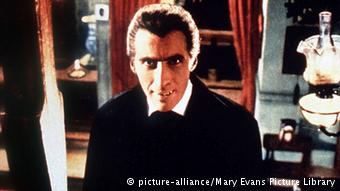 Christopher Lee died over the weekend at the age of 93. In 2001, at the age of 79, when he was in the midst of making films with George Lucas, Peter Jackson, and Tim Burton (among others), Lee talked to
Christopher Lee died over the weekend at the age of 93. In 2001, at the age of 79, when he was in the midst of making films with George Lucas, Peter Jackson, and Tim Burton (among others), Lee talked to  Director Nicolas Winding Refn has partnered with Milan Records to create a line of deluxe vinyl soundtrack LPs, curated by Refn himself. NWR editions of Oldboy and It Follows are now joined by the soundtrack to Refn's own Bronson, which was released yesterday. July 14 will see the release of Basil Poledouris’ score for Paul Verhoeven's RoboCop.
Director Nicolas Winding Refn has partnered with Milan Records to create a line of deluxe vinyl soundtrack LPs, curated by Refn himself. NWR editions of Oldboy and It Follows are now joined by the soundtrack to Refn's own Bronson, which was released yesterday. July 14 will see the release of Basil Poledouris’ score for Paul Verhoeven's RoboCop.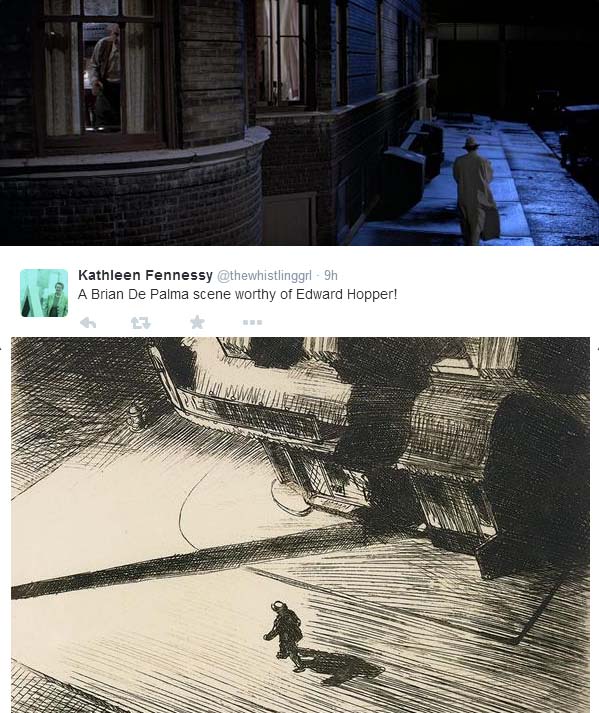
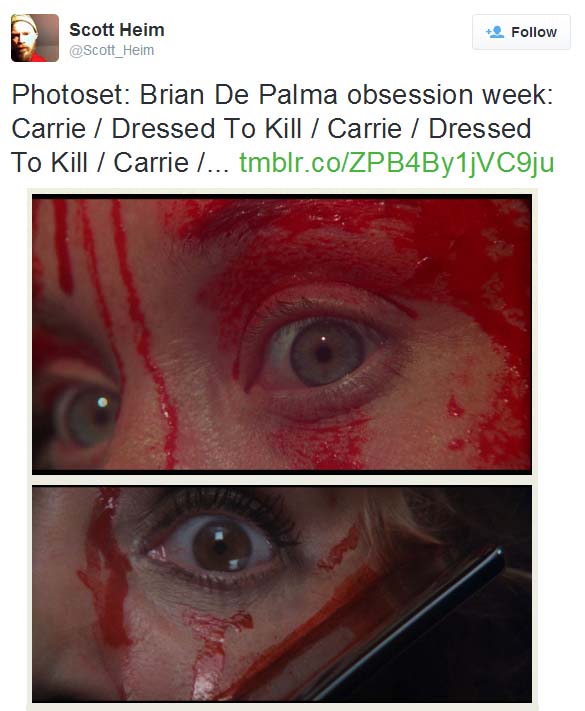
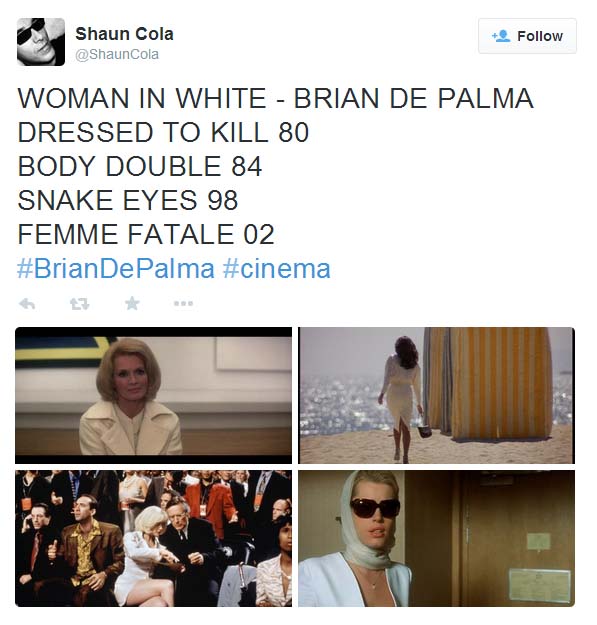
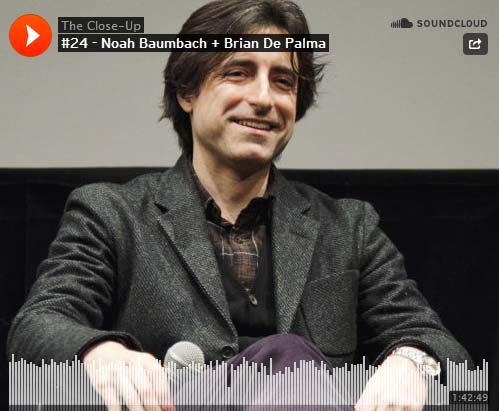
 At
At 
 As Fifty Shades Of Grey was released in theaters last weekend, several outlets posted articles discussing histories of sex scenes and sex thrillers in movies. Also making the rounds was a MovieMaker article from 2013:
As Fifty Shades Of Grey was released in theaters last weekend, several outlets posted articles discussing histories of sex scenes and sex thrillers in movies. Also making the rounds was a MovieMaker article from 2013: